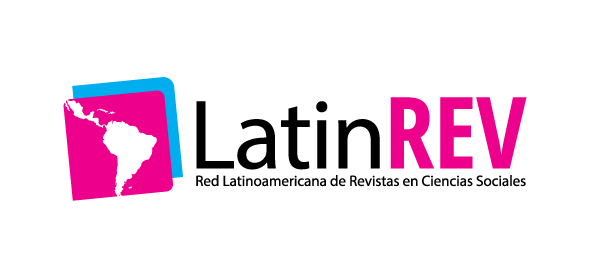El síndrome del Burnout en los Docentes Universitarios: Variables Asociadas
DOI:
https://doi.org/10.70833/rseisa1item8Keywords:
Burnout, Working Stress, University teachers (professors), Teacher's rolAbstract
The present work proposes to do a brief reflection about the burnout or burnt syndrome situation. At the moment, related especially to helping professions, between them, it is found with any doubt the teacher's, in the different levels including the higher. Know the causal factors of negative stress that make to show the syndrome and could perform preventively about them; they directly rebound in the teachers' teaching and in the management of all the university community. This analysis shows the studies conclusions carried out with Europe, Latin America and United States' .professors and tries a first reflection from the Paraguayan reality with the purpose to guide later on to a comparative study.
Downloads
References
Aldrete R., M.O.; Pando, M., M. ; Aranda B., C. y Balcázar P, N. (2003). Síndrome de Burnout en maestros de educación básica, nivel primario de Guadalajara. Investigación en salud [Revista electrónica], 5 (1). Disponible en: http://www.cucs.udg.mxlinvsalud/abriI2003/art2.html
Cordeiro C., J. A.; Guillén 0., C. L. y Gala L., F. J. Educación Primaria y Síndrome de Burnout. Situación de riesgo en los y las docentes de la Bahía de Cádiz. Disponible en: http://www.intersindical.org/salutlaboral/stepv/vall bumout.pdf
Díaz Barriga, F. y Hemández Rojas, o. (2003): Estrategias docentes para un aprendizaje significativo. Una interpretacion constructivista. México: McGraw-Hill.
García, E. (2003): Origens da Psicología Social no Paraguai. En Jacó- Vilela, A.; Lopes Da Rocha, M. y Mancebo, D., Psicología Social. Relatos na América Latina (pp. 85-122) Sao Paulo: Casa do Psicólogo.
Gil-Monte,P.; Peiro, J.; Valcarcel, P. y Grau, R., (1994): La incidencia del síndrome de burnout sobre la salud: Un estudio correlacional en profesionales de enfermería. En Musitu, 0., Intervención Comunitaria (pp. 349-358). Valencia: Cristóbal Serrano Villalba
Guerrero, E. Y Vicente C.; F. (1999): "Burnout" o desgaste psíquico y afrontamiento del estrés en el profesorado. Departamento de Psicología y Sociología de la Educación, Universidad de Extremadura. Disponíble en: http://wVl.W.aidex.es/estres/articuloseloisa/eloisa4.htm
Lodolo D'Oria et al. (2002): Quale correlazione tra patología psichuurica efenómeno del burnout negli insegnanti? Disponible en: http//:www.edscuola.itlarchivio/psicología/bumout.pdf
Maslach, E. y Leiter, M. (1999): Teacher burnout: A research agenda. En Vandenberghe, R. y Huberrnan, A. (Eds.): Understanding and preventing teacher burnout. Nueva York: Cambribge University Press
Marchesi, A. y Martín, E. (1998): Calidad de la enseñanza en tiempo de cambio. Madrid: Alianza Editorial.
Oliver, C. (1993): Análisis de la problemática de estrés en el profesorado de enseñanzas medias: el burnout como síndrome específico. Tesis doctoral no publicada. Universidad Autónoma de Madrid. Disponible en: http://redalyc.uaemex.mxlredalyc/pdf/337/33740309.pdf
Pellegrino, F.; Abate, S. y Della Porta, D. (2005): Burn-out, mobbing e malattie da stress. Come valutare il rischio psicologico e organizzativo-sociale. Verona: Positive Press
Ponce Díaz y otros (2005) El síndrome del "quemado" por estrés laboral asistencial en grupos de docentes universitarios. [Revista electrónica] Disponible en: http://www.unmsm.edu.pe/psicologia/publicaciones2.htm
Rossati, A. y Magro, G. (2000): Stress e burnout. 1 nuovi corsi universitari per laformazione dei docenti. Roma: Carocci Editore.
Sánchez de Gallardo, M. y Maldonado, L. (2003) Estrés en docentes universitarios. Caso LUZ, URBE Y UNICA. [Revista electrónica] Disponible en: http://www.serbi.luz.edu.ve/pdf/rcs/v9n2/articulo 1O.pdf
Santiago M., M. J. (2005): Causas del estrés laboral en docentes universitarios. Tesis doctoral no publicada. Disponible en: http://www.croem.eslWeb/CroemWebRiesgosLaborales.nsf/ca9fbec891192b50c1256bd7004f727c/d337ae2927fb44b341257044003l7e5d?OpenDocument&Click=
Downloads
Published
How to Cite
License
Creative Commons Attribution License CC-BY
You are free to:
Share — copy and redistribute the material in any medium or format.
Adapt — remix, transform, and build upon the material for any purpose, including commercially.
Under the following terms:
Attribution — You must give appropriate credit, provide a link to the license, and indicate if any changes have been made. You may do so in any reasonable way, but not in any way that suggests that you or your use is endorsed by the Licensor.







